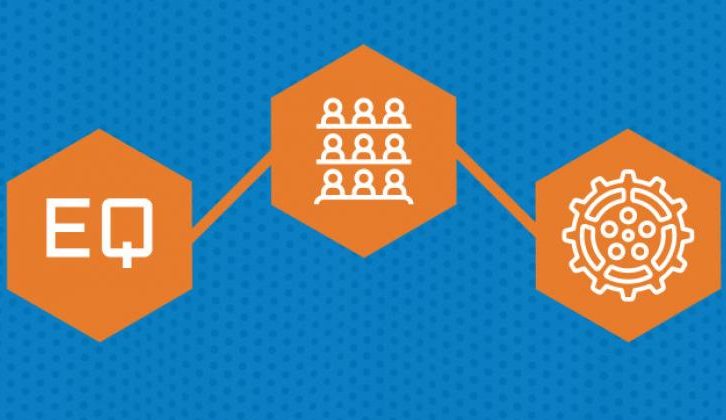The new world of work that we face in 2022 requires new leadership competencies.
For example, many employees are struggling with mental health issues. As leaders, you must develop the competency of emotional intelligence so that you can create authentic and deep connections with your employees and support their mental well-being.
In this new video, learn more about this and the other leadership competencies you need to lead in 2022.
To book Denise Lee Yohn to inspire and teach your people to become great leaders, see her website and YouTube channel.
If you like this article and video, sign up for SmartBrief’s free email newsletter on leadership. It’s among SmartBrief’s more than 250 industry-focused newsletters.
Transcript
We’re not in 2021 anymore! It’s pretty clear the work world in 2022 is very different from the past, so effective leadership requires new leadership competencies. Here are three ways work has changed and the leadership competency that you need to successfully navigate the challenges of each.
First, it’s very likely that your employees are struggling with their mental health. In research published by the Harvard Business Review, 76% of full-time employees in the US reported at least one symptom of a mental health condition in the past year. And more employees are leaving their jobs for mental health reasons, with 50% reporting doing so today compared to 34% in 2019.
To address this, companies need to provide mental health benefits and resources and develop more sustainable ways of working. But you as an individual leader also must support your employees’ mental well-being.
The competency you need is emotional intelligence – that is, the ability to perceive, use, understand, and manage emotions – yours and others – so that you are able to authentically and deeply connect with your employees. Emotional intelligence helps you create positive, healthy relationships with and among your employees and reduce their stress and burnout.
Next, work has changed in that employees have much more power and influence. Just consider the Great Resignation, and the ground-breaking unionization efforts at companies such as Amazon and Starbucks, and the increasing employee activism that has led to recent CEO firings or resignations.
Employees now have much higher expectations of their employers, including greater support for their personal development.
That means that you must develop the competency of people development. A baseline of technical skill and subject matter expertise remains a requirement of people managers. But the ability to develop, motivate and retain employees is becoming the primary measure by which leadership is assessed.
You must take an interest in employees’ personal goals and give them opportunities to develop new skills, gain access and experiences that advance their careers, and have greater agency in and impact on the company.
The third way work has changed is change itself. The pace and degree of change in the business world has reached a new high and they’re only going to increase. As a result, you need to be focused on today’s challenges and opportunities and ensure you have the resources to turn on a dime. But you can’t lose sight of long-term goals — you must invest in the fields that must be seeded, watered and tilled to ensure sustained business success.
The ability to face two conflicting priorities like these is known as integrative thinking. It’s a competency that has been developed by Roger Martin and his colleagues at Rotman. Integrative thinking involves leveraging the tension between two ideas to create new possibilities.
Instead of choosing between short-term tactics or long-term strategies, for example, you might adopt a planning cycle that allows you to strategically evaluate the allocation of resources more frequently. Other areas where integrative thinking will be needed in the coming year include supply chain and demand generation, serving employees and customers, personalizing the customer experience and protecting customer privacy. The key is to be able to rethink preconceptions associated with conflicting ideas.
Other leadership competencies are needed to be a great leader in 2022, but start by developing these three – emotional intelligence, people development and integrative thinking. Before you can lead programs and projects, you must master leading your people and leading your own thinking.
